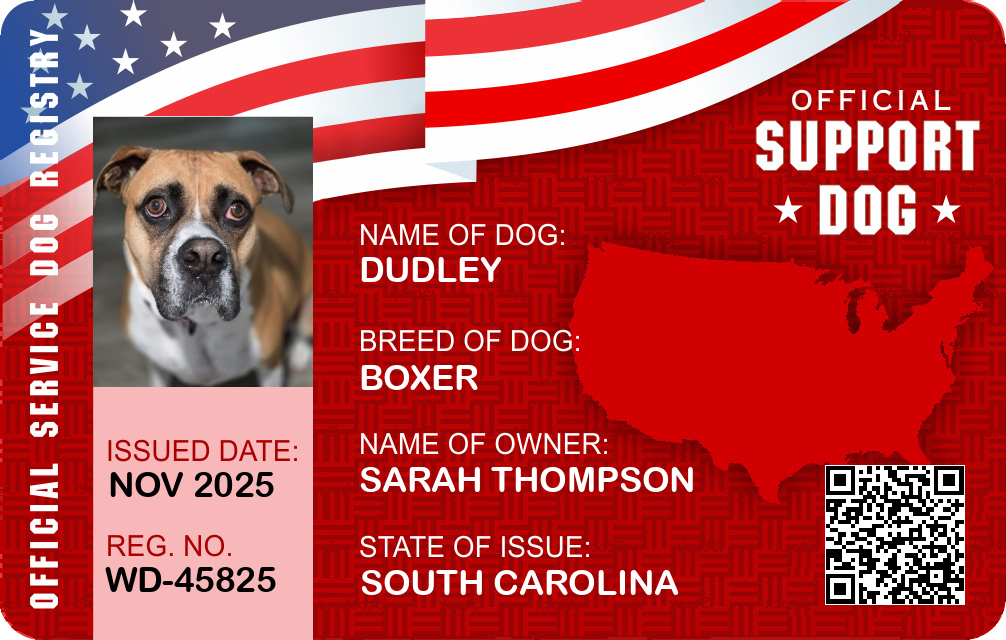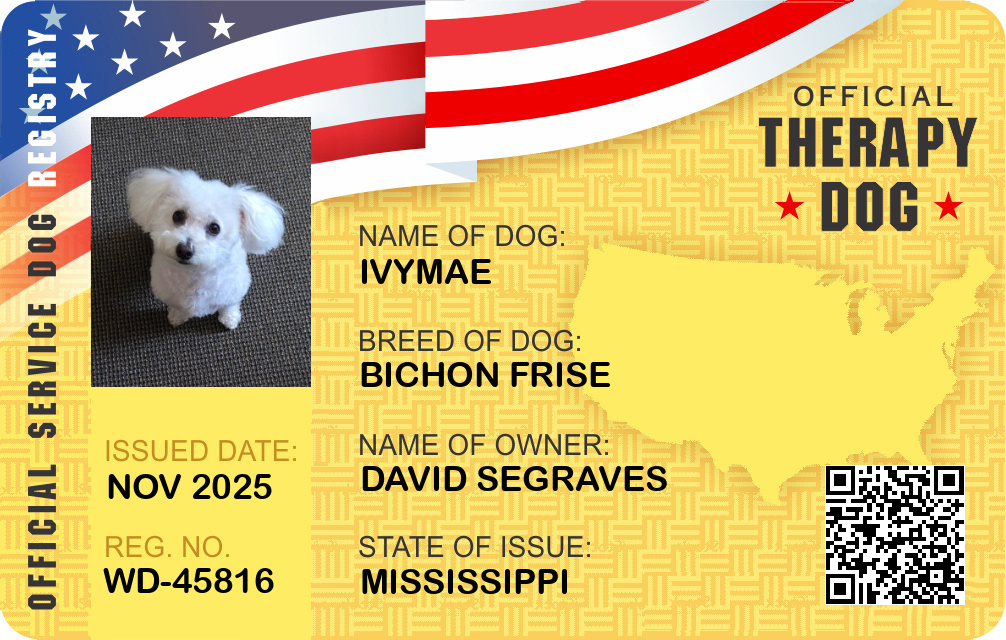Minnesota Emotional Support Animal Laws

Overview of ESAs and Legal Definitions in Minnesota
What is an Emotional Support Animal?
An Emotional Support Animal (ESA) is characterized by its role in providing therapeutic benefits to individuals with psychological or emotional conditions. Unlike service animals, ESAs are not trained to perform specific tasks related to an owner's disability. Instead, their presence is intended to alleviate symptoms of anxiety, depression, and other mental health challenges. This definition extends across most jurisdictions, including Minnesota, where ESAs are recognized primarily through their function of delivering comfort and support.
How ESAs Differ from Service Animals
The distinction between emotional support animals and service animals is crucial. Service animals, typically dogs, are individually trained to perform tasks directly related to the person's disability, such as guiding the visually impaired or alerting deaf individuals to sounds. In contrast, ESAs do not require specialized training and are not restricted to dogs; they can include cats, rabbits, and various other animals. This fundamental difference affects their legal status and the accommodations they receive, as ESAs do not have the same access rights as service animals in all public areas.
Key Federal Laws Affecting ESAs (e.g., FHA, ACAA)
Several federal laws shape the legal landscape for emotional support animals, impacting how these animals are accommodated across states, including Minnesota. The Fair Housing Act (FHA) ensures individuals with disabilities have equal housing opportunities, mandating reasonable accommodations in housing facilities for ESAs, regardless of pet policies. The Air Carrier Access Act (ACAA) previously allowed for ESA travel accommodations, but revisions effective from 2021 now exclude ESAs, treating them as pets rather than service animals. These federal laws form a baseline upon which Minnesota's state-specific regulations build.
State-Specific ESA Laws in Minnesota
Housing Rights and Responsibilities
In Minnesota, ESA owners have specific rights under the Fair Housing Act, which necessitates housing providers to make reasonable accommodations for ESAs. Landlords cannot impose pet fees or weight restrictions on ESAs, provided the owner has the appropriate documentation. However, this does not absolve an ESA owner from responsibilities; the animal must be well-behaved, and owners are liable for damages. Additionally, landlords are entitled to verify the necessity of the ESA through proper documentation without intruding into the individual's medical history.
Public Access and Accommodation
While Minnesota recognizes the federal distinctions between ESAs and service animals, it does not require public facilities such as restaurants, stores, or other businesses to allow ESA access. Generally, ESAs are not granted the same public accommodation rights as service animals. However, some businesses may voluntarily allow ESAs based on certain conditions. ESA owners should be mindful of these limitations and confirm policies before assuming access rights in public spaces.
Transportation and Travel Rules
Regarding transportation, Minnesota adheres to updated federal guidelines determining that airlines are not required to accommodate ESAs as service animals; instead, they treat them under standard pet policies. However, those using other forms of transportation may find differences in policies, as some companies might allow ESAs under certain conditions. It is critical for ESA owners to check with relevant transportation providers for their specific ESA policies well in advance of travel.
Employment and Workplace Considerations
The Americans with Disabilities Act (ADA) does not explicitly cover ESAs, which means workplace accommodations for ESAs are not guaranteed in Minnesota or federally. However, employees may request reasonable accommodations through their employer's HR department. The employer has the discretion to approve or deny such requests, typically weighing the need against the workplace's functional limitations. Documentation substantiating the ESA's necessity may enhance the likelihood of an employer's accommodation.
Documentation, Requirements, and Processes in Minnesota
ESA Letters and Who Can Issue Them
For ESA accommodations, an ESA letter is essential. This document must be issued by a licensed mental health professional, such as a psychologist, therapist, or psychiatrist, active and approved within the state of Minnesota. The letter should demonstrate the necessity of the ESA for the individual's emotional or psychological well-being. It is not necessary to disclose a detailed diagnosis; however, the letter should assert the professional's opinion on the need for the ESA as part of a treatment plan.
Registration, Certifications, aRegister Your Dog Instantly
nd Common Misconceptions
In Minnesota, there is no state-mandated registry or official certification process for ESAs. Many online services offer ESA registration or certification, but these do not confer any legal rights beyond what an official ESA letter offers. It is important to note that possession of a certificate from such services does not provide legal standing and is not a substitute for a legitimate ESA letter. Understanding this can help prevent common misconceptions and protect ESA owners from fraudulent claims.
Landlord, Business, and Provider Verification Rules
Landlords and housing providers in Minnesota are permitted to verify the authenticity of an ESA letter, including contacting the issuing mental health professional within HIPAA constraints. It is, however, a violation of privacy for landlords to request detailed medical information. Businesses and public accommodations may not have the same privilege of verification unless the animal's behavior raises significant safety concerns.
Rights, Limitations, and Legal Risks
Rights ESA Owners Have in Minnesota
ESA owners in Minnesota, thanks to federal housing laws, have the right not to be discriminated against by housing providers due to the presence of their ESA. This includes accommodations without added pet fees or restrictions on breed, size, or weight when proper documentation is presented. However, these rights are confined to housing and do not extend to unfettered access in public areas or workplaces.
Limits on ESA Protections and Common Restrictions
The protections granted to ESAs do have limits. In Minnesota, ESAs do not have guaranteed access to all public venues, nor do they inherently warrant workplace accommodation. Moreover, behavioral expectations must still be met; aggressive or disruptive animals may be lawfully excluded. Landlords retain the right to seek the removal of an animal if it presents a threat or causes consistent nuisance.
Penalties for Fraud or Misrepresentation
Misrepresenting an ESA as a service animal can lead to legal repercussions in Minnesota. While the state does not have specific penalties outlined for ESA misrepresentation, allegations of fraud can lead to denied access or accommodations, liable actions for damages, and potential legal disputes. Educating oneself on the proper distinctions and verifications is vital to avoid these legal challenges.
Practical Guidance for ESA Owners in Minnesota
How to Qualify for an ESA Legitimately
Qualifying for an ESA in Minnesota involves a legitimate diagnosis and recommendation from a licensed mental health professional. Individuals should consult with their healthcare provider to understand their mental health needs, after which they may be issued an ESA letter supporting their request for accommodations.
How to Talk to Landlords, Airlines, and Employers
Communication is key when discussing ESA accommodations. When approaching landlords, presenting the ESA letter upfront, demonstrating the animal's behavior, and discussing personal responsibilities can facilitate smoother rental processes. For airlines or employers, understanding and articulating equal rights and acknowledging any limitations in a respectful dialogue will typically result in a more favorable outcome.
Tips for Avoiding Scams and Legal Problems
When seeking ESA documentation, avoid services promising guaranteed results or certifications in exchange for payment without professional consultation. Engage only with licensed mental health professionals for legitimate ESA letters. Staying informed on Minnesota and federal ESA laws will prevent unintentional misrepresentation and legal problems by guiding ESA owners towards legitimate practices.
Summary of ESA Laws in Minnesota
- Definition and Role: Emotional Support Animals provide comfort and emotional stability without specific task training.
- Housing Rights: ESAs are protected under the Fair Housing Act, ensuring owners' rights to reasonable accommodation.
- Public Access and Travel: No automatic public access rights, with updated federal rules shifting airline policies; public travel varies by provider.
- Workplace Considerations: ESA accommodations not mandated; requests can be resolved at an employer's discretion.
- Documentation: ESA letters must be issued by licensed professionals; registries and certifications do not hold legal weight.
- Limitations and Risks: No public access entitlement; misrepresentation may have legal repercussions.
This guide is a foundational resource intended to help ESA owners navigate the legal nuances specific to Minnesota, ensuring they remain informed and compliant when asserting their rights under applicable laws.











